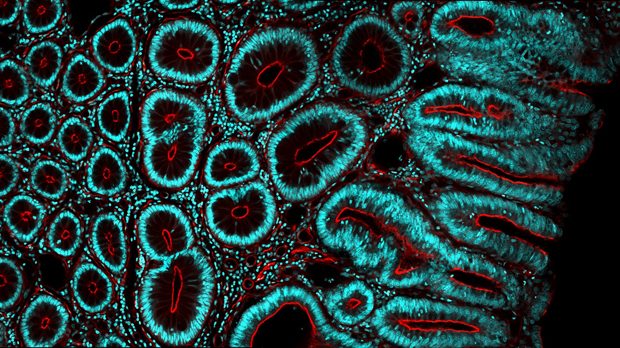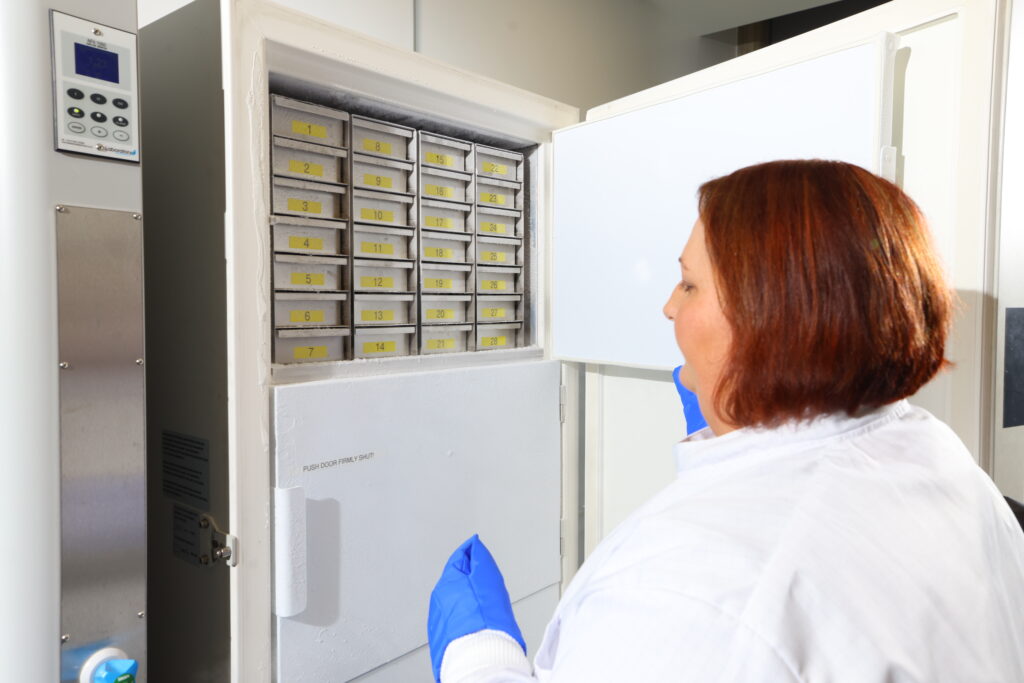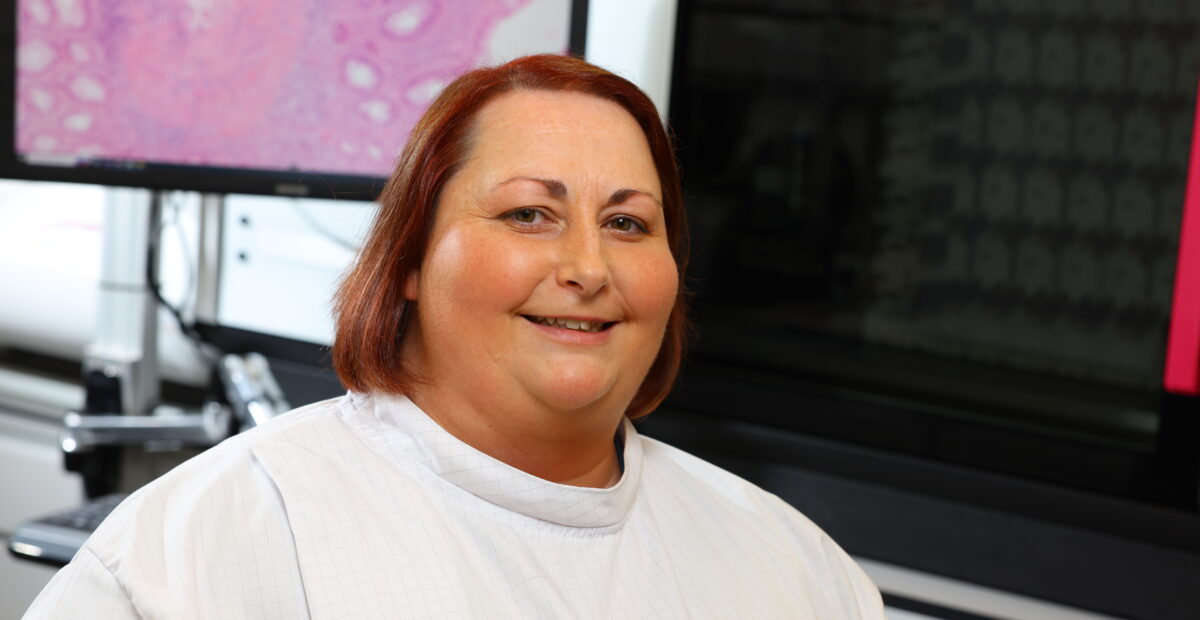Claire Jones, lead advanced biomedical scientist at Novopath and Dr John Tyson, head of the North East Innovation Lab and molecular geneticist
Medicine is advancing rapidly from the traditional ’one-size-fits-all’ approach, with a much wider understanding and recognition that treatments which are effective for some patients, may not be for others.
Precision medicine takes into account individual differences in genes, environments and lifestyles, enabling clinicians to select prevention strategies and treatments that are most likely to help individuals.
One example of this specialist field is an understanding of the deep and complex differences between cancer types. For example, we know there isn’t just one type of breast cancer; there are many different subtypes and revolutionary treatments are emerging to tackle this.

Precision diagnostics can improve the speed and accuracy of detecting certain types of tumours and can help to define and target effective treatments.
Cancer ‘biomarkers’ can be comprised of genetic material, or proteins, for example a mutation in a specific gene, a level of a hormone, or the presence of a type of an immune cell. The latest techniques – including analysing cells and their makeup using ‘molecular assays’ – can find these biomarkers and closely categorise the cancer, guiding clinicians to the most effective and targeted treatment for those who can benefit most. This has the additional advantage of saving unnecessy treatment for people who do not stand to benefit.
Newcastle Hospitals’ innovation lab team has advanced facilities and a team who have specialist expertise to test the performance of new assays, ensuring they give repeatable and reproducible results. We can test whether tests give results that are the same time and time again, and that the result won’t be affected by variations in manufacturing, the user, or the laboratory facilities.
The data we generate can form part of a test’s technical development and regulatory approval, meaning a new diagnostic can be a certified as an in vitro diagnostic (IVD) device.
The accurate identification of cancer types, through using these latest diagnostics, is essential to enable more personal treatments that maximise benefit and reduce harm. Other uses of biomarkers include early detection of cancers, earlier warning of cancer returning after treatment, information to anticipate how someone might respond to therapy and for optimised treatment plans.
Our innovation lab is working with Cancer Research UK in collaboration to develop a new assay, which will identify tiny biomarkers for early stage pancreatic cancer, which are released into the blood and very hard to detect.
Meanwhile, our Novopath team has specialist equipment, expertise and knowledge in cellular pathology techniques, helping to detect new biomarkers for cancer and other hereditary diseases. We work closely with clients such as AMLo Biosciences to support the incorporation of cancer biomarkers into a range of diagnostic products to improve patient outcomes and transform care.
Cancer biomarkers can be measured in a variety of clinical specimen, including liquid biopsies in blood or urine, or in a biopsy of the tumour itself.

Being part of Newcastle Hospitals means we have close links with hospital teams and departments. Our research nurse collects a range of clinical samples – both archived and by request – to hold in our combined biobank which includes blood, urine and tissue. These samples are accessible to researchers and test developers who require high grade clinical samples to evaluate their technologies and products.
It’s extremely rewarding to be part of the successful advances in molecular pathology that are enabling the NHS to progress personalised medicine which changes people’s lives.
*If you’d like to learn more about the science of cancer treatments, our Newcastle Clinical Skills Academy is holding a suite of courses from introductory to advanced level.

